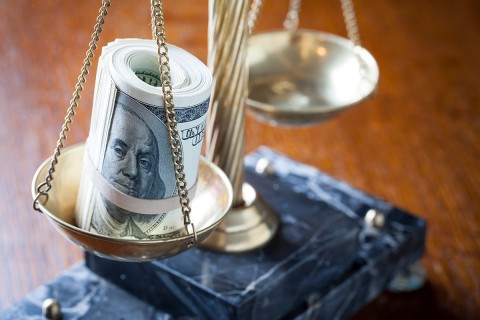It’s time to end the cash bail system
You don’t get people to show up in court by threatening to take away money they never had.

At a press conference last month, St. Louis pastor Norma Patterson told the story of a young woman who lives in the public housing complex near Patterson’s church. She was arrested after she got involved in a fight and broke a storm door off of its hinges. She couldn’t afford bail, so she was kept in jail for months while her trial date approached. In that time, she lost her job and custody of her daughter. The crime she was accused of: damaging government property. The amount of her bail: $40,000.
St. Louis isn’t the only jurisdiction with a draconian money bail system. Of the 500,000 people in the United States currently being held in jail until their trials, 80 percent are there because they can’t afford bail. Their median annual income is less than $20,000. Most of them are Black or Latino. All are legally innocent until their day in court.
The theory behind bail is that it gives people accused of a crime an incentive to show up for their trial. In reality, the use of money bail creates a two-tiered justice system: while wealthier people can buy their freedom after being arrested, poorer people are held till trial.





